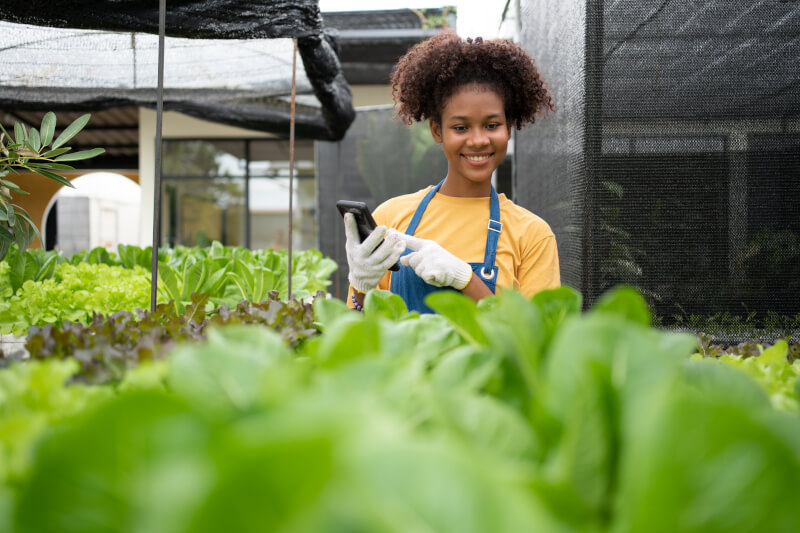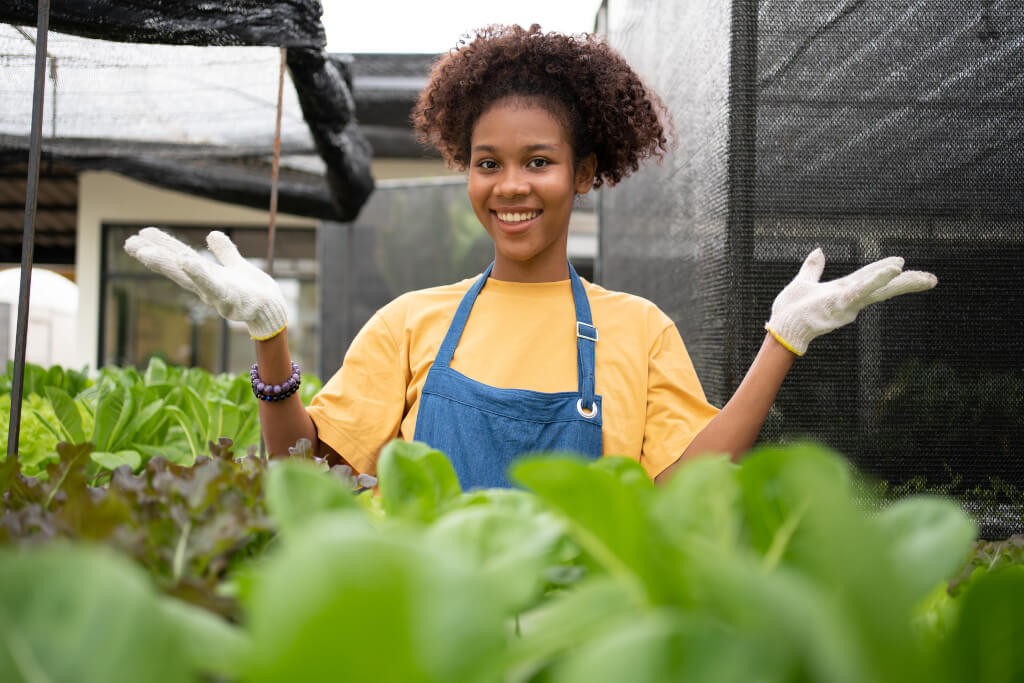Hydroponics in a City Setting
Our cities are experiencing a welcome paradigm shift, propelled by creative thinkers and doers who refuse to be stopped. Andile Matukane is one such agent of transformation; she originally wanted to be a dentist but now works in agriculture. What sets her apart is not her youth or her gender, but the location of her successful farm: atop the crowded Menlyn Shopping Centre.
The Evolution of a Potential Farmer
Andile, a native of Mpumalanga, South Africa, became interested in where his food came from while studying agriculture in high school. Her interest in agriculture prompted her to earn a diploma, a bachelor’s degree in technology, and a master’s degree from the University of Mpumalanga and Tshwane University of Technology, respectively. However, there were difficulties associated with studying. Andile self-funded her education and conducted considerable research-related travel, all while working in a field traditionally dominated by men.
Out into the Wide Open Spaces and Further
When Matukane first started farming, he did so in open fields. However, when the COVID-19 epidemic broke out, she changed her methods of farming. Andile took this change in circumstances as an opportunity and moved into hydroponic farming, which involves growing plants without soil and instead using mineral nutrient solutions in an aqueous solvent. Farmers’ Choice, her hydroponic farm, was made possible by the sustainable farming practices that allowed her to keep growing during the epidemic.
Conquering Obstacles and Fostering Advancement
Andile faced criticism from individuals who didn’t believe a young woman could be successful in farming, but she ignored them to focus on her goal. She doesn’t see the challenges and mistakes she’s overcome as failures, but rather as the building blocks of her success as a farmer. She is now recognized as an expert in her field and has established an example by demonstrating that one’s age or gender is irrelevant to their success in agriculture.
A Role Model for Rural Women
Andile sees a dramatic shift in attitudes toward women in agriculture as a result of the current economic climate. She plans to use her status as an example to encourage other young ladies to take an interest in farming. She helps educate the next generation of farmers by teaching them through the Agriculture Sector Education and Training Authority (AgriSETA). Her advice to aspiring female farmers is both simple and profound: plant a single seed and watch it flourish into a bountiful harvest.
Planting the Seeds of Success
Andile Matukane exemplifies how dedication, perseverance, and creativity may lead to remarkable success. She is paving the path for a more environmentally friendly and sustainable future by introducing farming to urban areas and proving the efficacy of sustainable methods like hydroponics. Her experience strikes a chord because it shows how hardships can be overcome and how limitless one’s potential is when one is ready to think beyond the norm.
The Confluence of Empowerment and Agriculture
The significance of Andile Matukane’s venture extends beyond the realm of her achievements. It highlights the crucial role of women in revamping traditional industries like agriculture with innovative solutions, thereby propelling South Africa’s sustainable development forward.
Notably, the presence of women like Matukane in agriculture is instrumental in reshaping societal perceptions about gender roles in this field. This not only expands the horizons for women aspiring to enter the industry but also brings diverse perspectives, stimulating creativity and innovation.
Furthermore, initiatives such as Andile’s rooftop farm are not just about producing food; they represent the convergence of agriculture and urban development, demonstrating how these traditionally separate sectors can harmoniously coexist. The hydroponic farming technique she employs is a testament to the potential of modern agriculture to adapt to constraints and sustainably contribute to food security.

However, this success should not be seen as an end, but rather as a starting point. It is imperative for other aspiring entrepreneurs, especially women, to follow suit, seize opportunities, and break down traditional barriers. As a society, we must celebrate, support, and learn from pioneers like Matukane, using their experiences as stepping stones to a brighter and more inclusive future in agriculture.
Caution must be exercised, however, to ensure the growth of this sector is nurtured correctly. As the population grows and urban areas expand, the demand for sustainable food production will continue to rise. Consequently, comprehensive support systems and policies need to be put in place to help young entrepreneurs navigate the industry’s complexities and challenges.
Andile Matukane’s achievements shine a spotlight on the potential of women’s empowerment to revolutionise South African agriculture, underscoring the vital role of innovation in meeting our future food needs. A sustainable and inclusive agricultural sector has far-reaching benefits for the entire nation, from food security to economic growth. It is therefore incumbent on all stakeholders to foster an environment where such innovation can flourish, laying the groundwork for a prosperous future for all.
About the Author:
Lunga Dlamini is a journalist specialising in African start-ups and entrepreneurship. Lunga’s fascination with innovative business models and emerging market trends guides his writing. He has an MBA and has been with Africa Nova since its inception.




